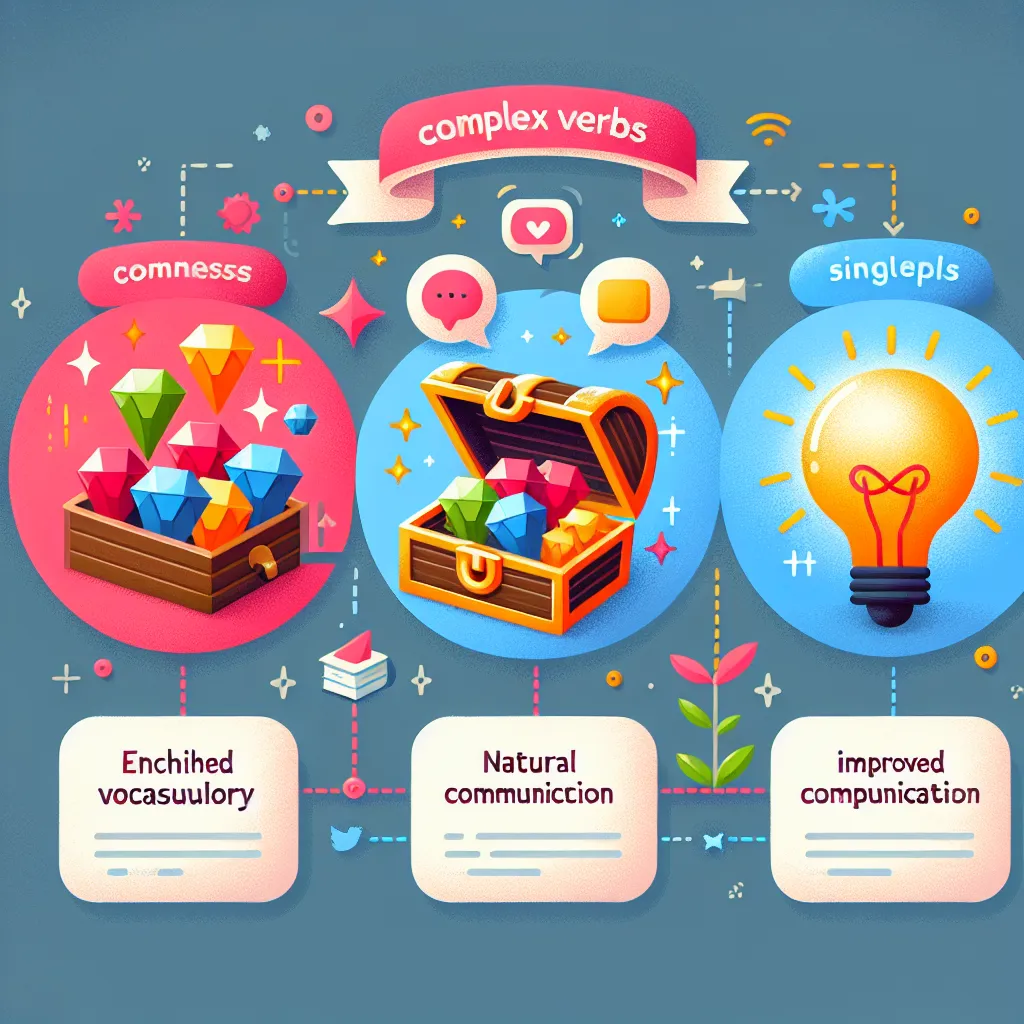Are you struggling with complex verbs in English? You’re not alone. Many language learners find this aspect of grammar challenging, but with the right approach, you can master it. This guide will help you understand and use complex verbs effectively, enhancing your overall English proficiency.
Understanding Complex Verbs
Complex verbs, also known as multi-word verbs or phrasal verbs, are combinations of verbs with prepositions or adverbs that create a new meaning. They are an essential part of English grammar and are widely used in both formal and informal contexts.
Why are Complex Verbs Important?
- Enriched vocabulary: Complex verbs add depth and nuance to your language.
- Natural communication: Native speakers frequently use these verbs in everyday conversation.
- Improved comprehension: Understanding complex verbs enhances your reading and listening skills.
 Importance of Complex Verbs
Importance of Complex Verbs
Types of Complex Verbs
1. Phrasal Verbs
Phrasal verbs consist of a verb and one or two particles (usually prepositions or adverbs). For example:
- Look up: to search for information
- Give in: to surrender or yield
- Put up with: to tolerate
2. Prepositional Verbs
These verbs are followed by a preposition and an object. For instance:
- Rely on: to depend on someone or something
- Agree with: to have the same opinion as someone
- Listen to: to pay attention to sound
3. Phrasal-Prepositional Verbs
These combine both phrasal and prepositional verbs. Examples include:
- Look forward to: to anticipate with pleasure
- Get away with: to escape punishment for
- Run out of: to exhaust a supply
Strategies for Mastering Complex Verbs
-
Context is Key: Learn complex verbs in context rather than memorizing lists. Read English texts, watch movies, or listen to podcasts to see how these verbs are used naturally.
-
Practice Regularly: Use complex verbs in your writing and speaking. Try to incorporate them into your daily English use.
-
Group Similar Verbs: Organize complex verbs by their base verb or by theme. For example, group all “look” phrasal verbs together (look up, look after, look into).
-
Use Mnemonic Devices: Create memorable phrases or images to help you remember the meanings of complex verbs.
-
Understand Separable and Inseparable Verbs: Some phrasal verbs can be separated by their object, while others cannot. Learn to identify these.
 Strategies for Mastering Complex Verbs
Strategies for Mastering Complex Verbs
Common Mistakes to Avoid
-
Incorrect Particle Usage: Be careful not to mix up particles. For example, “look after” (to take care of) is different from “look for” (to search).
-
Formal vs. Informal Use: Some complex verbs are informal and shouldn’t be used in formal writing. For instance, “put off” (to postpone) is less formal than “postpone”.
-
Literal Interpretation: Don’t always interpret complex verbs literally. For example, “give up” doesn’t literally mean to “give” something “up”.
-
Overuse: While it’s good to use complex verbs, don’t overuse them, especially in formal writing.
Practical Exercises
-
Gap-fill Exercises: Complete sentences with the correct complex verb.
-
Paraphrasing: Practice replacing single-word verbs with equivalent complex verbs and vice versa.
-
Storytelling: Create short stories using a set of given complex verbs.
-
Conversation Practice: Use complex verbs in role-play scenarios or conversations with language partners.
-
News Article Analysis: Read news articles and identify complex verbs, noting their usage and context.
For more advanced practice, you might want to explore how to use advanced clauses in persuasive writing, which often incorporate complex verbs.
Conclusion
Mastering complex verbs takes time and practice, but it’s a crucial step in advancing your English proficiency. By understanding their types, practicing regularly, and being aware of common mistakes, you can significantly improve your use of these important language components. Remember, the key is consistent practice and exposure to authentic English usage. Keep challenging yourself, and you’ll soon find complex verbs becoming a natural part of your English expression.
To further enhance your grammar skills, you might also be interested in learning how to use inversion in sentences, which can complement your understanding of complex verb structures.




